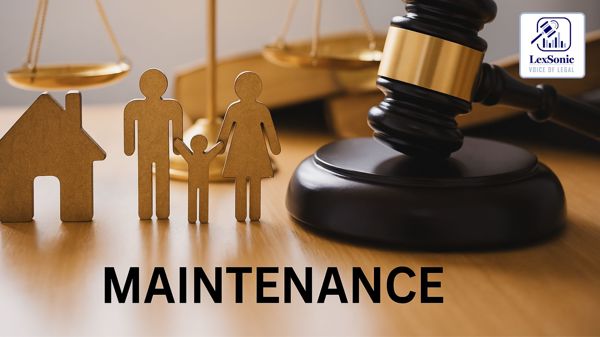In a recent appeal of Akanksha Arora Vs Tanay Maben, the Supreme Court examined the dismissal of a petition filed under Section 482 of the Criminal Procedure Code (CrPC) by the appellant seeking an enhancement in the interim maintenance granted by the Family Court. The appeal involved a judgment rendered by the High Court of Jabalpur on 21st September 2023, in the case of Akanksha Arora vs. Tanay Maben (Miscellaneous Criminal Case No. 18481 of 2022).
Background of the Case:
The appellant, Akanksha Arora, approached the Family Court, seeking interim maintenance under Section 125 of the CrPC. The Family Court, in its order dated 8th March 2022, had granted a certain amount of interim maintenance in her favor. However, dissatisfied with the quantum of maintenance awarded, the appellant filed a petition under Section 482 CrPC before the High Court, requesting an increase in the amount. The High Court dismissed the petition, holding that the appellant had an alternative remedy in the form of a revision petition under Section 397 CrPC.
Court's Analysis:
The issue at hand was whether the High Court erred in dismissing the petition on the grounds that the appellant should have filed a revision petition rather than invoking the inherent powers under Section 482 CrPC. The Supreme Court, in its analysis, emphasized that the nomenclature of a petition is immaterial. The Court reiterated the principle established in several precedents that the substance of the matter should prevail over its label.
This implies that, in appropriate cases, the High Court has the discretion to convert a petition filed under one provision into a petition under another, provided that it serves the ends of justice.
In support of this, the Court referred to the landmark case of Madhu Limaye v. The State of Maharashtra (1977), which clarified that the label attached to a petition is not a determinative factor in granting relief. Instead, the High Court should focus on the substance of the petition and can exercise its inherent powers under Section 482 CrPC to remedy the situation.
Furthermore, the Supreme Court cited Prabhu Chawla v. State of Rajasthan (1977), which clarified that the existence of an alternative remedy (such as a revision under Section 397 CrPC) should not automatically bar the exercise of inherent powers under Section 482 CrPC. The Court emphasized that the availability of an alternative remedy does not negate the High Court’s jurisdiction to invoke its inherent powers when there is an abuse of process or other extraordinary circumstances that warrant such intervention.
Ruling and Directions:
Given the legal precedents and the facts of the case, the Supreme Court found the High Court's approach to be overly technical. The appellant's petition should not have been dismissed solely on the grounds of an alternative remedy. Instead, the appropriate course of action would have been for the High Court to convert the petition under Section 482 CrPC into a revision petition under Section 397 CrPC and address the merits of the case.
The Supreme Court thus set aside the High Court's order and remanded the matter, directing the High Court to convert the petition into a revision under Section 397 CrPC. The High Court was instructed to decide the revision petition in accordance with the law after providing the parties with an opportunity to be heard.
Conclusion:
The judgment underscores the importance of judicial flexibility in ensuring that justice is served. The Supreme Court's decision highlights that the substance of a petition should not be overshadowed by procedural formalities. In cases where the Court has inherent powers to provide justice, it should not shy away from invoking these powers, especially when an alternative remedy is available. The decision also emphasizes the necessity of a fair hearing and the proper application of the law, regardless of the procedural route taken by the parties involved.
This case serves as a reminder that while technicalities are important, they should not prevent the judicial system from ensuring that justice is delivered effectively and equitably.
Section 125., Code of Criminal Procedure - 1973
Section 397., Code of Criminal Procedure - 1973
Section 482., Code of Criminal Procedure - 1973
Code of Criminal Procedure, 1973

